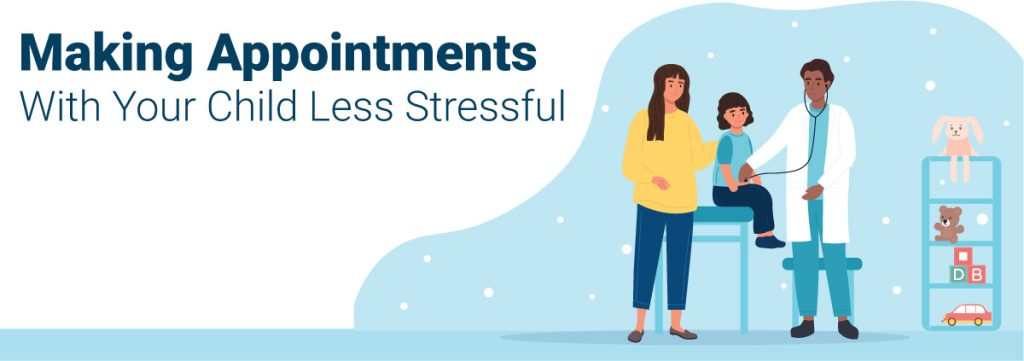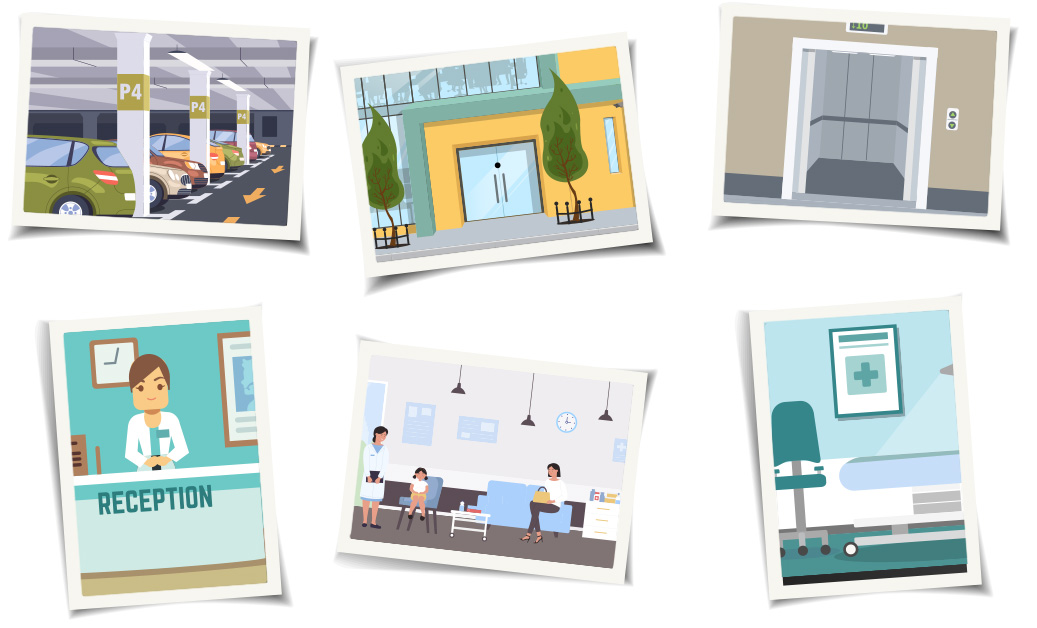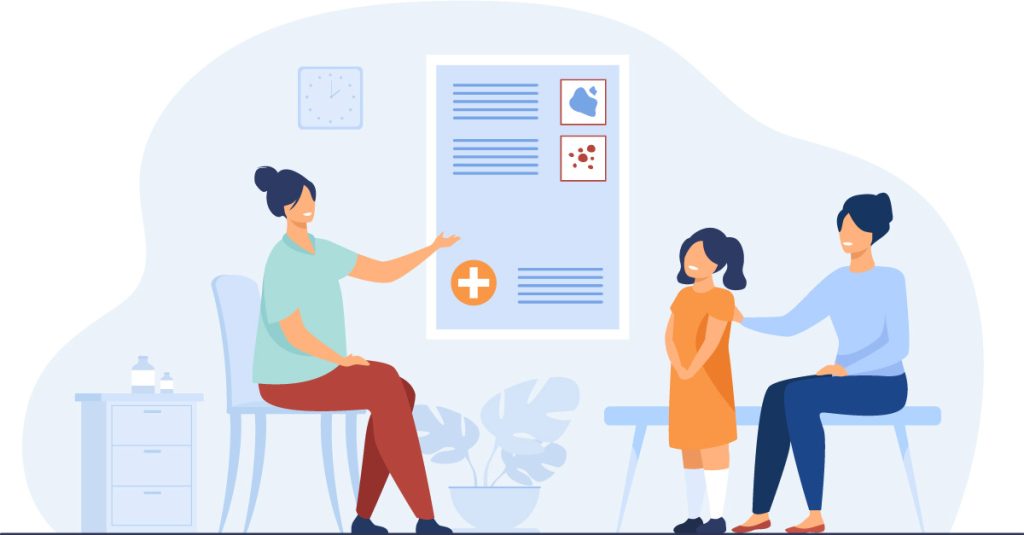
Have you ever scheduled an appointment for your child and immediately felt apprehensive about the day it will arrive, simply because you have learned that as the parent or caregiver to a person with autism, taking your child to appointments can be HARD!
When we visit a familiar place, we know what to expect. When we go to a doctor’s office that we’ve been to before, we know how long it will take to get there, what the waiting room is like, who we’ll see, and how they’ll treat us. Plus, we usually know all of the procedures we may experience. All of this prior knowledge directly affects our motivation for going to that appointment.
Now, imagine the opposite of knowing.
On top of a lack of prior knowledge for a new appointment in an unfamiliar setting, children with Autism Spectrum Disorder may experience additional difficulties, including but not limited to social and communication impairments, sensory sensitivities, and rigidity.
Not to worry, we’ll share some methods you can use to help ensure your child’s appointments are a success. It’s all about preparation.
Scheduling
- Avoid pulling your child from their favorite activities to go to the appointment. If you can control it, pull them from activities that they won’t mind missing, or might even be happy to miss instead.
- Let the appointment scheduler know that your child has difficulty in these situations. Hopefully, they can pair you with a provider skilled in working with apprehensive children or someone with ASD experience. Providers often appreciate advance notice as it allows them to prepare for a successful visit with your child.
- Minimize your stress level by scheduling appointments at minimally stressful times for you, your child, and your family. Avoid times when your family is busy, like trying to leave for work, school, or other activities. Be mindful of not splitting your attention between multiple priorities, as this will only increase your stress during an already stressful time.

Develop Expectations
- Make a test run. In the days leading up to your appointment, make a test run, or multiple test runs, to the office. Try to make the drive around the same time of day as your appointment. This will help your child become familiar with the route and the building, and it will help you understand the traffic patterns and allow you to plan the timing of your trip.
- Visit during office hours. If you can go during office hours and your child is willing, ask to schedule a tour so that you can look around inside. If your child is apprehensive, start by walking around the outside of the building, or even just sitting in the parking lot.
- Take pictures. Create a social story about your visit with pictures to illustrate what they will see and words to outline what they can expect. Be sure to take pictures during your test run and tour if you were able. Review the social story several times with your child in the days leading up to the appointment, it will help them know what to expect.

Practice
Pair the Appointment with Reinforcement

Create it in partnership with your child, be sure to consider the things they like to see, activities they enjoy, or items they want to earn. If your child loves smiley faces, you can create a simple sticker chart where they can earn smiley face stickers for positive behaviors before, and during, the appointment. After earning a certain number of stickers, they can earn a reward or several!!! A reinforcement system can boost their motivation to make positive behavior choices and encourage your child to try harder to cooperate for the appointment.
Plan something that your child loves right after a successful appointment, and let them know about it in advance. For example, if they earn a predetermined amount of smiley stickers, you could take them to get a donut after the appointment or a trip to the park. A bonus prize will give them something to think about before and during their appointment and help provide extra motivation.
Remember, this is a bonus reward, not a loss of something they typically expect in their daily routine. If the appointment doesn’t go as well as planned, they shouldn’t miss out on something they usually get at home. In addition to disappointment, doing so will likely backfire and make future appointments more challenging.

Stay Positive & Have Realistic Expectations

Helping Those with Autism Gain Independence
Developing independence takes time… a lifetime! And are we ever truly independent? Children are continuously developing the skills necessary to become self-sufficient adults. But they

Connect Plus Therapy Earn 3-Year BHCOE Accreditation
CHERRY HILL, N.J., April 4, 2022 — Connect Plus Therapy has been recognized by the Behavioral Health Center of Excellence (BHCOE) with a 3-year accreditation.

Sleep Tips for Those with Autism
Many children with autism spectrum disorder experience sleep issues. Most commonly, children with autism have difficulty falling asleep and experience disturbed sleep once they do.
